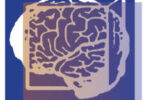by Yana A. St. Clair, Esq.

This is a truly fascinating topic, and we can no longer avoid the huge impact that AI will have on our very immediate future.
In recent years, advancements in natural language processing technology have led to the creation of sophisticated language models like ChatGPT, which are capable of generating human-like text. While these models have many potential applications, there is also concern that they could be used to produce plagiarized content. In this essay, we will explore the relationship between using ChatGPT and plagiarism, and the ethical considerations that must be taken into account when using this technology.
Firstly, it is important to understand what plagiarism is. Plagiarism is the act of presenting someone else’s work or ideas as your own, without giving proper credit to the original author. This can take many forms, including copying and pasting text, paraphrasing without citing sources, and using someone else’s ideas without attribution. Plagiarism is widely considered to be unethical and is taken very seriously in academic and professional contexts.
Using ChatGPT to produce written content can be a useful tool in certain situations, such as drafting emails, writing social media posts, or generating content for websites. However, using ChatGPT to produce work that is submitted as original content without proper attribution is a form of plagiarism. This is because the text produced by ChatGPT is the result of an algorithm that was created by humans, and therefore constitutes intellectual property. To use ChatGPT-generated content without giving proper credit to the model or its creators is to engage in unethical behavior that can have serious consequences.
One of the challenges of using ChatGPT is that it can be difficult to determine what constitutes original work and what is generated by the model. ChatGPT is capable of producing highly sophisticated text that can be difficult to distinguish from human writing. Therefore, it is important to be aware of the limitations of the technology and to use it responsibly.
There are some steps that can be taken to ensure that using ChatGPT does not lead to plagiarism. The first step is to be transparent about the use of the technology. When using ChatGPT to generate content, it is important to clearly indicate that the content was generated by an algorithm, and to provide proper attribution to the model and its creators. This can be done by including a disclaimer at the beginning of the text or by including a citation at the end of the document.
Another way to use ChatGPT responsibly is to use it as a starting point for original work, rather than a source of content to be copied and pasted. ChatGPT can be used to generate ideas, provide inspiration, or help with the structure of a document. However, it is important to take the time to write original content based on the ideas and concepts generated by the model. This ensures that the final product is unique and reflects the author’s own ideas and voice.
It is also important to understand the legal and ethical implications of using ChatGPT. Many language models, including ChatGPT, are subject to copyright and licensing agreements. Therefore, it is important to understand the terms of use for the model before using it to generate content. Some models may require attribution or restrict the use of the generated content in certain ways. It is important to be aware of these restrictions and to follow them to avoid legal or ethical issues.
In conclusion, using ChatGPT can be a powerful tool for generating written content. However, it is important to use the technology responsibly and ethically. This means being transparent about the use of the model, using it as a starting point for original work, and following the legal and ethical guidelines for using the model. By taking these steps, we can ensure that the use of ChatGPT does not lead to plagiarism, and that the technology is used in a way that is beneficial to society as a whole.
I hope you enjoyed this article. And now for the fun twist and
– DISCLAIMER –
It wasn’t written by me!
It is a product of ChatGPT.
Now this is a truly fascinating topic, and we can honestly no longer avoid the huge impact that AI will have on our very immediate future.
Thus, in our next issue, we will discuss these real-life applications, this time written by me, and let’s see if my research as a human, agrees with our helpful assistant’s opinion on the matter.
Disclosure: Please note that none of the information contained within the above column is to be considered legal advice.
Biography
Yana is an American attorney licensed to practice in all State and Federal courts of California. Yana holds a Bachelor of Arts Degree in Political Science specializing in International Relations from UCLA, the Degree of Juris Doctor from Loyola Law School, and a Master of Business Administration Degree from Ashford University. Since the beginning of her undergraduate studies, Yana has been involved in various aspects of the field of Electrical Engineering, where she employs her business and legal knowledge to consulting and advising businesses and individuals on relevant topics of concern. Yana also serves as Editor for PACWorld magazine, having been with the publication since its inception. As an attorney, Yana specializes in criminal defense, where she devotes her talents and expertise to fighting for her clients’ rights and freedom.








